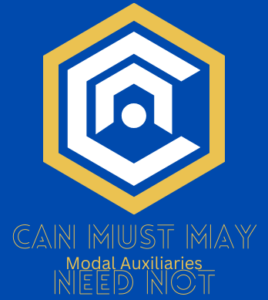
CAN
Full form Negative Negative – short form
I can come. I cannot come. I can’t come.
Question
Can I come?
The same forms are used for other persons: (you, he, she, it, we, they)
Use:
– can relates to ability
I can do it.
She can come at 8 p.m..
Can they carry it?
They can swim.
MUST
Full form Negative Negative – short form Question
I must come. I must not come. I mustn’t come. Must I come?
The same forms are used for other persons: (you, he, she, it, we, they)
Use:
– must in positive sentences and questions means a duty or obligation, but in a negative statement it means a negative order
I must do it now.
Must they do their homework now?
We mustn’t forget to send those letters.
– must in addition to its first meaning could also have a meaning of a probability, and in this case the past tense is created as follows: must + have + past participle
He must know it. (He probably knows it.)
He must have known about it. (He probably knew about it.)
MAY
Full form Negative Question
I may come. I may not come. May I come?
The same forms are used for other persons:(you, he, she, it, we, they)
– may relates mainly to permissions (especially in questions)
May I come in?
May he play with their toys?
– in addition to its original meaning, may can also relate to slight probability; in this case its past tense is created as follows: may + have + past participle
He may bring it. (He will bring it, perhaps.)
He may have brought it. (Perhaps he brought it.)
NEED NOT, NEEDN ‘T
I (you, he, she, it, we, they) needn’t go there.
– needn’t (need not) has the same form for all persons and relates to an absence of obligation
You needn’t go there.
They needn’t do it now.
She needn’t help me.
© Simple English News™ / Ahhoy.net